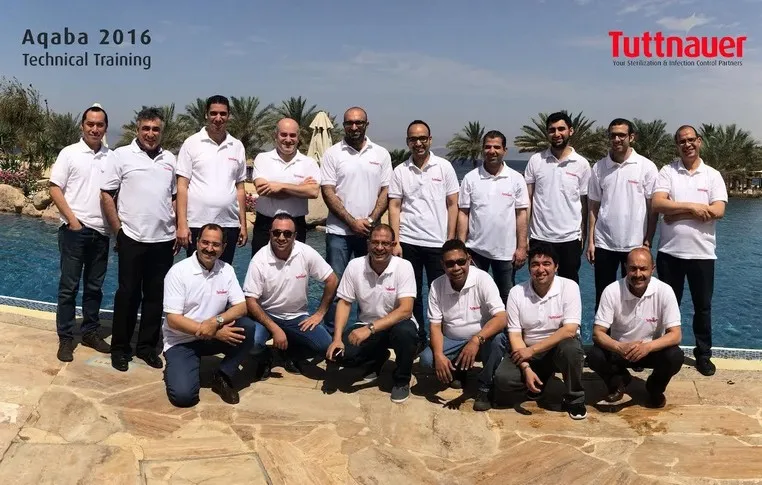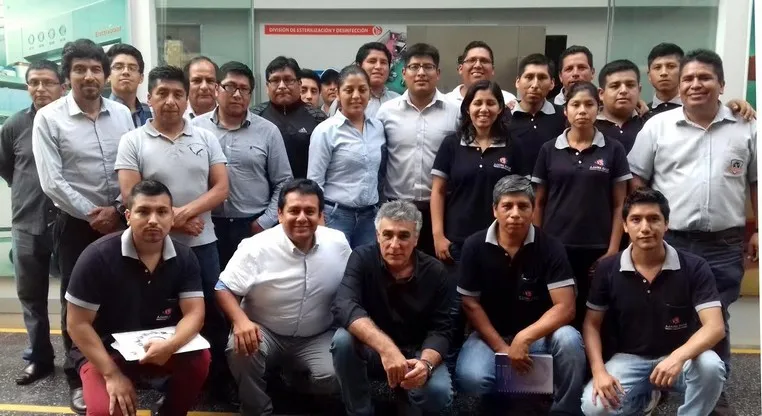In general Tuttnauer provides two types of technical training. The first is horizontal autoclave training and the second is tabletop/laboratory autoclave training. This is what we did in Bangkok as well. This year there were 36 engineers who attended these two training sessions. At the end of the sessions they received a certificate of authorization to maintain and repair our autoclaves, which is valid for three years. Since we are continually updating our technologies and changing our products, we require our engineers to become recertified every three years. In this way, we are able to retrain them and update them on all the latest changes to our products.
I train engineers and technicians all around the world, in every region and segment of Tuttnauer’s global market. We have led training sessions and continue to conduct yearly sessions in the following places: the United States, Europe, South America, Australia, the Middle East, Africa, India, and Southeast Asia.
We prepare our representative engineers to install, commission, and maintain our autoclaves in every region where we sell Tuttnauer autoclaves. In training these engineers, I prepare them to be able to diagnose problems accurately and solve them in a professional and timely manner.
Tuttnauer’s strategy is to reduce the cost of the training for the participants in order to increase the number of participants who attend the training. We do this by locating the training sessions as close to each individual region as possible, thus reducing the travel and lodging costs for our engineers. We conduct training sessions in English and Spanish. I have trained more than two thousand engineers in my career, all over the world. Our approach to training is one in which we create an atmosphere of team learning and bonding in which we share meals. We plan the sessions to include activities and meals during the entire time together. We have trained recently in the Netherlands, New York, Chicago, Peru, Mexico, Columbia, Costa Rica, Mumbai and Goa (India), Bangkok (Thailand), Mombasa and Nairobi (Kenya), Brisbane (Australia), Russia, Ukraine, Korea, Beijing and Shanghai (China), Aqaba (Jordan), Cyprus, and Israel.

We prepare printed learning materials that discuss new technologies, software, etc. and hand them out to the engineers to enhance their learning experience. In addition we print technical training books that are given to each participant, as well as a digital file that contains all the training materials, procedures, troubleshooting tips, and short videos that will assist the engineers in understanding and implementing what they have learned. My approach to training is to begin the first day of the session with a theoretical foundation of the principles of the sterilization process, physical parameters, and measurements. I see this as a very important part of the training, and this is what differentiates an engineer who understands not only practical problem solving but the whole theory behind the process -- and therefore can prevent recurrence of a problem -- from one who only tries to fix a problem in a local and narrow-minded way.
The biggest challenge is to find a way to train engineers at varying levels of knowledge and experience. In order to overcome this, I try to avoid making the training dry and boring, but rather liven it up with humor and jokes. This keeps everyone engaged and enjoying the session regardless of their level of knowledge. I also give out prizes -- Tuttnauer souvenirs! There are language barriers, which can be difficult. I make sure to use basic English -- not at the level of Shakespeare! :-) This helps us understand each other better.
There are global issues, and there are region specific issues. For example, the high altitude of the places in South America is a critical issue that has to be addressed, particularly during the installation and setup of new autoclaves. This issue is less common in other regions. The quality of utilities, such as water and electricity, is an issue in Africa and other remote places where access to utilities is difficult.
The next training will take place in Puerto Vallarta, a resort in Mexico, and will be spoken in Spanish. The resort atmosphere will make our training enjoyable and memorable. We expect approximately 75 participants. My wife is also joining the Tuttnauer team and will definitely enjoy the resort! She joins us once a year, and this year she’s coming to the Mexico training.

The challenge of sterilization has become more complicated and sophisticated over the years as a result of discoveries and developments in infectious diseases and our understanding of how microorganisms reproduce, for example prions. Also, today the instruments that are sterilized are more sophisticated and more delicate, making them more challenging to sterilize without damaging them.
A few times it has happened to me when training in Spanish that I used words or expressions that used to be acceptable and have now taken on new, negative connotations in slang. The participants were surprised by my choice of words. That created quite a humorous situation!
I like traveling to South America. The people are warm, the food is good, and the music is perfect.